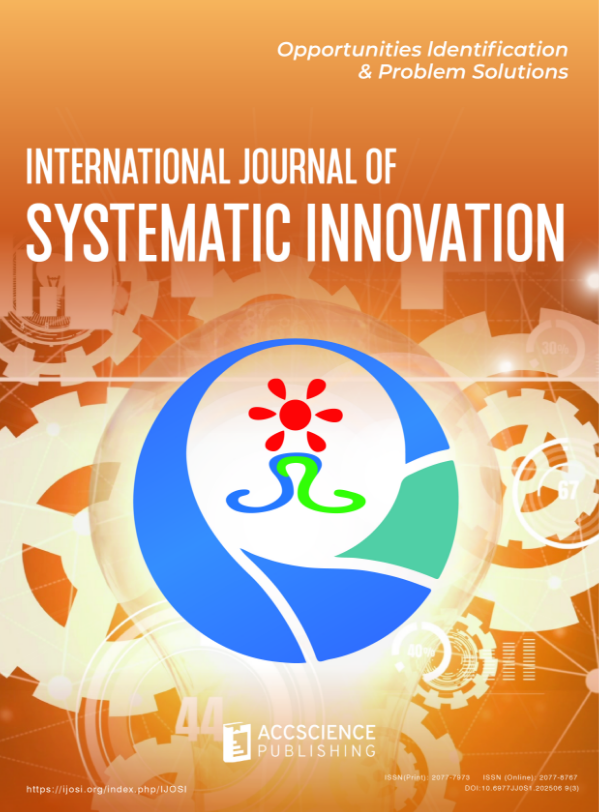Articles
Article
Article Types
Article Types
Year
—
Volume
Issue
Pages
—

International Journal of Systematic Innovation
Gold Open Access Charge APCs Double-Blind Peer Review Archived in Portico
 0.8
0.8Electronic ISSN: 2077-8767
Print ISSN: 2077-7973
Indexing: Scopus, EBSCO
Editor-in-Chief: Dongliang Daniel Sheu View Editorial
Board
The aims of the journal are to publish high-quality scholarly papers with academic rigor in theoretical and practical studies in order to enhance human knowledge/skills in and promote beneficial applications of Innovation Methods, especially Intelligent Innovation Methods and their integration with and applications in the related fields. Readership of the Journal include anyone who is interested in the fields and topics of the Journal.
Back to top
International Journal of Systematic Innovation, Electronic ISSN: 2077-8767 Print ISSN: 2077-7973, Published by AccScience Publishing




